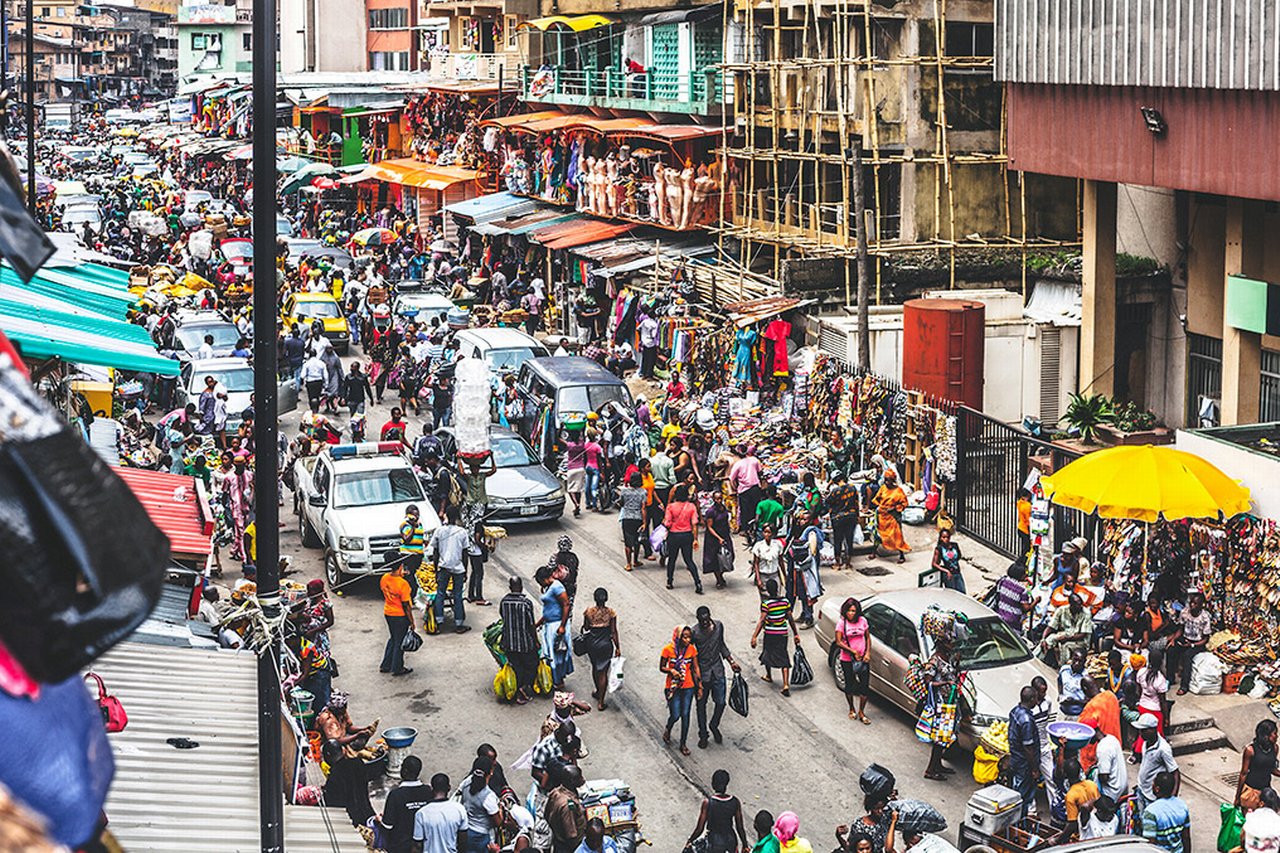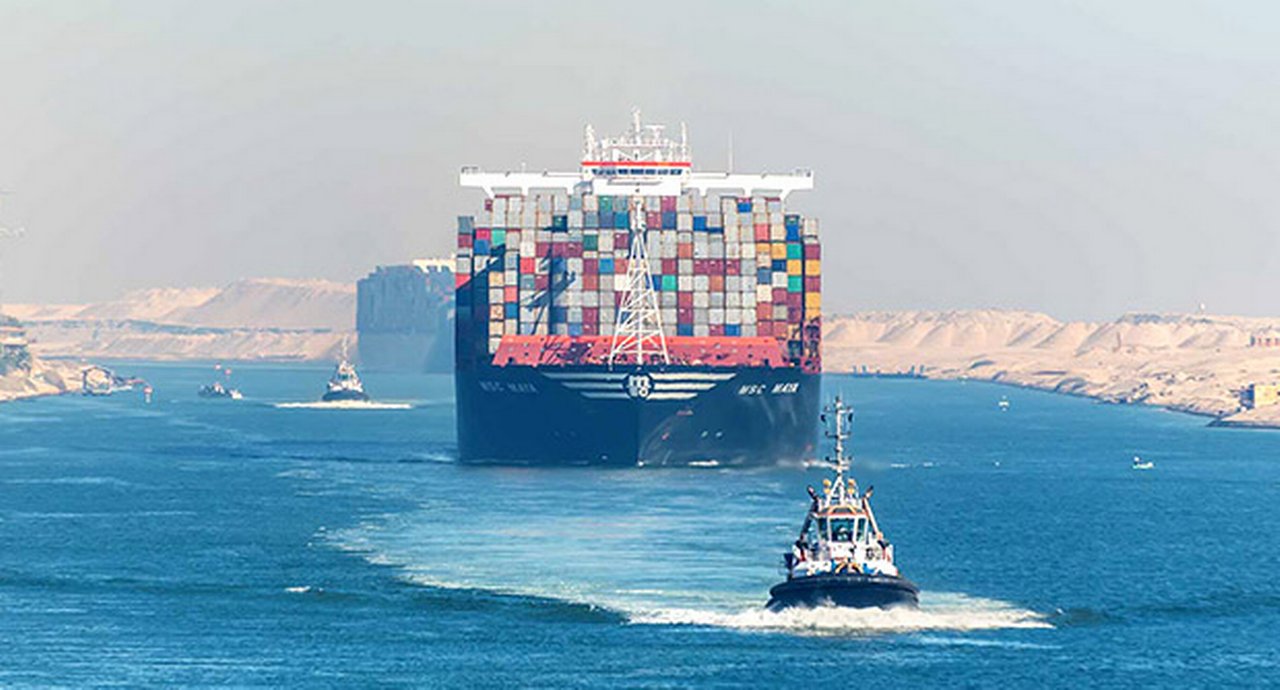4 January 2022
As the world looks to emerge from the corona virus pandemic but braces for further strains of the virus, how has West Africa been holding up? Better than many regions, is the answer – flow's Clarissa Dann takes a closer look at the economic uptick in Nigeria and Ghana
MINUTES min read
The Roman polymath Pliny the Elder observed that “there is always something new out of Africa”1. That reputation for innovation is still apt two thousand years later. For example, as Africa’s largest economy, Nigeria has long been viewed by businesses as a testing ground for further regional or even pan-African expansion plans. To steal from Frank Sinatra (and with apologies to New York City), it is said that if a business can make it in Nigeria, it can make it anywhere in Africa.2
But today’s ‘something new’ has added a new-found respect for the resilience that Nigeria and the wider West Africa region have demonstrated in weathering the pandemic. This article examines the post-Covid challenges and choices open to those investing, manufacturing, and trading in the region, and uncovers a pervading optimism for the region’s post-Covid prospects.
Weathering the pandemic well
Covid’s impact on the region has been low both in absolute terms (by December 2021, official Covid death tolls for example were 388 for Guinea, 287 for Liberia, and 121 for Sierra Leone), but also in relative terms (Ghana’s population of 30 million suffered 1,261 Covid fatalities while Poland’s population of 38 million had recorded 92,052 Covid deaths).3 Vaccination rates have been comparatively low across Africa, with an average of 6% being fully jabbed,4 and indeed the average vaccination rate in West Africa is slightly lower at 4.8%.5 But this has largely been due to limited local production and the late arrival of vaccines from outside Africa, given that 99% of all Africa’s supplies (those for Covid included) are imported.6
Despite the comparatively low Coivd-19-related death rates, there has obviously been disruption due to the pandemic, but regional economic growth coming out of Covid has seen “an extremely strong rebound and a significant increase in inward trade flows”, notes Andreas Voss, Deutsche Bank’s Chief Country Officer for Nigeria. The region has weathered the pandemic well, and this “might in part be due to the region’s experience of pandemics, and its youthful population,” observes Danelee Masia, Deutsche Bank’s Senior Economist in Africa. It might also be due in part to the robust public health programmes and increasingly joined-up governance within and between nations in West Africa.
Nigeria and Ghana – poised for growth

Lagos Island’s commercial district
In the Deutsche Bank Research report Emerging Markets Outlook 2022 (8 December 2021), Masia remarks on the strength of the Nigerian economic recovery and indicates that 2022 growth should increase to more than 3%, “but a return to pre-pandemic oil output could take it to 4%”. She continues, “Mobility data suggest consumers are shifting towards more discretionary spending, which could raise credit appetite but also imports. Public sector minimum wage adjustments, and rising staff costs in general will add to energy inflation and exchange rate risks. Risks to outlook are tied to oil output, electricity supply and related energy cost pressures, as well as policy/political decisions ahead of 2023 elections.” See Figures 1 and 2.

Figure 1: Growth recovery hinges on oil output
Source: Deutsche Bank, Haver Analytics

Figure 2: Consumers’ discretionary spending behaviour improving sharply
Source: Google mobility reports
As for Ghana, notes Masia, “We have revised our growth forecast for 2022 higher, despite the surprise rate hike in November. A positive credit impulse supported by easing lending standards; scrapping of public road toll fees and robust public sector wage growth cement our call for an above consensus recovery.” All of this, she adds, “now helps to consolidate the fiscal deficit to below 5% in 2024, but interim disappointment means the market may remain sceptical”.
Where could the “disappointment” come from? According to Deutsche Bank Research, it could be “shortages, cedi [i.e., currency] depreciation and higher staff costs.” Masia points out that while this could raise the risk of another interest rate hike in the first half of 2022, “we think this may make fiscal consolidation much harder to achieve”. See Figures 3 and 4.

Figure 3: Strong growth lift as services recover
Source: Deutsche Bank, Haver Analytics

Figure 4: Stronger growth increasingly important for debt sustainability
Source: Deutsche Bank, Haver Analytics
When addressing Ghana’s parliament in 2009, former US President Obama observed that “Africa doesn’t need strongmen, it needs strong institutions”. That advice appears to have been heeded by the region’s leaders, as shown by the Ibrahim Foundation’s Index of African Governance, instituted by the founder of the continent’s prestigious Mo Ibrahim Prize for African leaders. Its recent rankings indicate that despite some recent negative press coverage, over the last decade the governments of Nigeria and Ghana have – for example – made advances in aspects of the ‘foundations of economic prosperity’ (especially regarding infrastructure investment, public administration, the rural sector and general business environment) and also progressed in aspects of ‘human development’ (especially health, education, social protection, and sustaining the environment).
While public spending in the region could be more efficient (as indeed it could be in several other developed market economies), there are ambitious local initiatives to improve this. For example, ‘Ghana Priorities’ was established by an international think tank and Ghana’s National Development Planning Commission to use evidence-based testing to determine which simple and cost-effective interventions to roll-out. Examples of its successful interventions include diagnostics for malaria and tuberculosis and registration for property rights.
Cross-border trade flows; manufacturing
Aside from the response to Covid, concerted government action also manifested itself in the creation of Africa’s Continental Free Trade Area (AfCFTA), whose headquarters are in Accra.
The trade bloc is the culmination of a collective realisation – voiced back in 2004 by Rwanda’s President Paul Kagame – that “in Africa today, we recognise that trade and investment, and not aid, are pillars of development”. AfCFTA finally came into effect on 1 January 2021 and seeks to create a very large single market. While vaccines are one product that could greatly spread through this market, the current absence of regulators with powers over the AfCFTA for vaccines (although there is an Africa Centre for Disease Control and Prevention7) and/or other products risks impeding the uplift that the Fact could provide to regional economic growth in the short-to-medium term. However, in the long-term the World Bank estimates that the AfCFTA will nearly double intra-continental trade in all manufactured goods by 2035.8 Such an estimate is a robust riposte to one Harvard professor’s earlier conclusion that the continent had ‘prematurely deindustrialised’9 as more likely the situation is that we are at the outset of a ‘manufacturing renaissance’ in Africa.10
That could not come at a better time, as Covid has underlined West Africa’s dependence on imports and accordingly its high susceptibility to disruptions in global supply chains. This susceptibility remains, despite many Western companies having realised the importance of localising their production in the region: while the likes of PZ Cussons and Unilever have been in what is now Nigeria for a century, more recent examples of MNC appetite include Nestlé, Procter & Gamble, Big Dutchman, and AB InBev in Nigeria, and Nissan and Volkswagen car-assembly plants in Ghana.
Currency and commodities prices volatility

Cocoa pods on a Ghanaian cocoa tree
Supply chains and payments all along these value chains are also being affected by volatility and fluctuations in local currencies and commodity prices. It is therefore no surprise that managing dollar liquidity is a top priority for West African central banks – in Nigeria around 60% of its USD receipts come from crude oil exports. The country is, after all, Africa’s largest producer of oil and gas and the 11th largest in the world.
In November 2020, The Central Bank of Nigeria released a new five-year economic plan that included measures to reduce the country’s dependence on oil revenues, and the impact of exchange rate volatility on its economy.11 Commenting at the time, Godwin Emefiele, the CBN Governor said that in the five-year plan Nigeria will seek “to preserve domestic macroeconomic and financial stability”.
Ghana is less heavily dependent on hydrocarbon exports, although they are still an important contributor – its top exports are precious metals, followed by crude oil, and then cocoa – US$1.89bn coming in from being the world’s largest producer of cocoa beans.
To mitigate FX risks in this sort of environment, commercial banks can help. The structured letter of credit is, says Lagos-based Andreas Voss of Deutsche Bank, “a great tool in markets where there are difficulties in US dollar supply specifically, and in markets where there is higher volatility generally”.
“The fly-in-fly-out model does not work in Africa, one must “have boots on the ground”
Asset management and capital markets opportunities
Nigeria introduced mandatory pensions – for those in formal employment – in 2004. Nigerian pension funds, such as Sigma Pensions, now manage US$31bn in total, providing funds – through government bond purchases – for investment in much needed capacity-building power, port, rail, and road infrastructure projects. Such a flow of bond purchases also helps diversify government revenues, around half of which come from oil; and the bond purchases are particularly welcome given current production problems prevent that oil revenue from being optimised.
Following similar schemes introduced by the government of Ghana in 2008, and by that of Kenya in 2011, Nigeria also launched a ‘micro-pensions’ programme in 2019. This scheme aims to increase the savings and pension pots of the informal workers who constitute around 80% of Nigeria’s workforce. Start-ups such as Awabah are helping enable this scheme, while furthering the government’s agenda of financial inclusion – of ‘banking the unbanked’ – and of bolstering citizens’ financial literacy and financial security as the country’s population ages over the coming decades.12
But pensions and micro-pensions are only part of the wider story of e-commerce, the digital economy, and fintechs. Indeed, three (Flutterwave, Interswitch, and Jumia) of Africa’s four ‘unicorns’ (startups valued at more than US$1bn) are based in Nigeria. Opportunities abound for not only increasing the pools of investible sums, but of also utilising them in infrastructure projects (both in the offline and online worlds) that generate further growth, jobs, and income in a country that already accounts for one-quarter of the entire continent’s GDP. Capital is pouring into data centres, for example, with the private equity firm Actis recently investing US$250m into Nigerian market leader Rack Centre.13
Trusted local partner
“Nigeria is a very interesting market: yes, there are obstacles and challenges, but if you identify the right partners and localise your business there are great opportunities for exporters, for producers, and for German companies generally,” notes Ulf-Peter Noetzel, Chairman of Trade Finance for Financial Institutions globally for Deutsche Bank.
Voss makes the point that doing business in Nigeria has to be a commitment. He concludes, “The fly-in-fly-out model does not work in Africa, one must “have boots on the ground,” and one must choose your local partners carefully,” recommending that corporates involve their banking partners as early as possible in plans and transactions to help reduce risk and maximise the upside. And with such a growing population and economy, West Africa certainly offers significant upside to local corporates, foreign corporates, and returning members of diasporas alike. To update Ghana’s first Prime Minister and President Kwame Nkrumah’s bold pronouncement of 1960, post-Covid West Africa is facing neither East nor West, it faces forward.
Deutsche Bank Research reports referenced
Emerging Markets Outlook 2022: The plot thickens (8 December 2021)
Sources
1 See Natural History, book VIII
2 Frank Sinatra’s song has the words, “If you can make it there, you'll make it anywhere; it's up to you, New York, New York”
3 See https://bit.ly/3myTRMr at jhu.edu
4 See https://bit.ly/3JrIe3u at who.int
5 See https://bit.ly/32G8WVt at oecd.org
6 See https://bit.ly/3qt7GNz at gavi.org
7 See https://africacdc.org/
8 See https://bit.ly/3pzwyEc at worldbank.org
9 See https://bit.ly/3EEN4GZ at harvard.edu
10 See https://bit.ly/3Etw5HO at unido.org
11 See https://bit.ly/3FAR64N at ghextractives.com
12 See https://bit.ly/3pAPMcC at worldbank.org
13 See https://bit.ly/3pyvxfu at act.is
Trade finance solutions Explore more
Find out more about our Trade finance solutions
solutions
Stay up-to-date with
Sign-up flow newsbites
Choose your preferred banking topics and we will send you updated emails based on your selection
Sign-up Sign-upYou might be interested in
Trade finance and lending {icon-book}
Trade’s choking hazards Trade’s choking hazards
What happens if cargo ships can’t get through ports? Does trade grind to a halt and impact economic growth in surrounding countries? Independent trade economist Rebecca Harding examines supply chain resilience
Trade finance and lending
What’s next for commodities? What’s next for commodities?
Commodities are bouncing back from their Covid-19 lows and some even talk of a supercycle. flow reports on longer term issues facing the industry, such as fraud, digitalisation and ESG transition discussed at the May 2021 TXF Virtual Commodity Finance Conference
Sustainable finance, Trade finance and lending
Towards 2050: the case for gas Towards 2050: the case for gas
The COP26 summit saw governments commit to achieving Net Zero by 2050, but this will prove “incredibly difficult to achieve”, a recent Deutsche Bank Research report concludes. flow’s Clarissa Dann examines why its analysts believe that although the world’s appetite for coal and oil must be cut, gas plays a vital role in keeping the lights on



